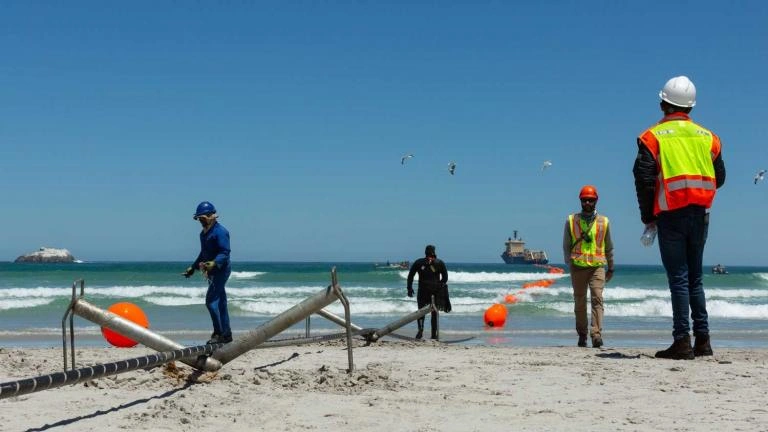
Meta’s Investment in Safaricom Signals Kenya’s Growing Role in Africa’s Digital Future
Kenya has once again drawn the attention of major global technology players. This time through a landmark partnership between Safaricom PLC and Meta, the parent company of Facebook, Instagram, and WhatsApp. Meta, through its affiliate Edge Network Services, has committed to financing part of Safaricom’s $23 million Daraja subsea cable project. Which will see the construction of a 4,108-kilometer high-capacity fiber-optic cable linking Mombasa, Kenya, with Salalah in Oman. Scheduled for completion in 2026, the project represents far more than a technical upgrade; it signals a strategic investment in Kenya’s future as a digital hub for East Africa.
The Daraja Project is designed to strengthen Kenya’s digital backbone at a time when the country has relied heavily on aging subsea cables that no longer meet the demands of its fast-growing digital economy. By laying this new infrastructure, Safaricom and Meta are helping to ensure not just faster and more reliable connectivity, but also greater resilience and independence in Kenya’s digital networks. The city of Mombasa is set to evolve into a critical landing point for regional connectivity, cementing its position as a gateway between Africa and global digital markets.
The ripple effects of this development will extend across multiple sectors of the economy. Enhanced internet speeds and reliability will unlock new opportunities in e-commerce, digital healthcare, fintech, and online education. For a country that has already pioneered mobile money and digital innovation, the Daraja cable provides a new foundation for scaling those successes even further. This is also significant for platforms like our mobile app Afrecash, which will benefit from improved connectivity and wider reach, allowing us to deliver faster, more reliable services to users across Kenya and the broader region. With Afrecash designed to serve everyday financial needs such as money transfers, payments, and digital transactions, a stronger internet backbone means lower downtime, quicker processing, and the ability to serve more customers simultaneously.
In many ways, this infrastructure investment directly supports the growth of fintech platforms like ours, ensuring that users in both urban and rural areas can access services seamlessly.
Meta’s involvement also connects Kenya to a much larger narrative. The Daraja Project complements the 2Africa initiative, one of the world’s largest subsea cable systems, which is aimed at expanding connectivity across the continent. By choosing to partner with Safaricom on a regional project, Meta is signaling confidence in Kenya’s ability to act as a driver of East Africa’s digital transformation. Another industry observer noted that global companies rarely commit to such projects unless they see long-term potential, suggesting that Meta’s investment is both a validation and an acceleration of Kenya’s digital journey.
Ultimately, Meta’s decision to invest in Safaricom’s infrastructure is about more than laying cable beneath the sea. It is about laying the groundwork for a stronger, more connected, and more resilient future for Kenya one in which the opportunities already recognized locally are now being amplified on a global stage. For investors, policymakers, and innovators alike, the message is clear: Kenya has become the place where global capital meets local ingenuity, and the momentum building here is set to define the next chapter of Africa’s digital economy.



